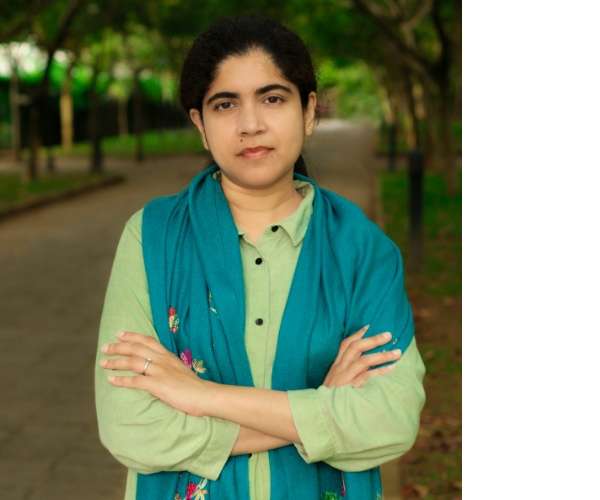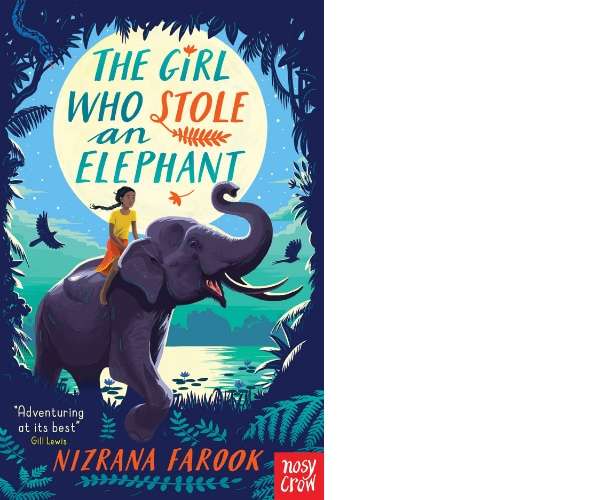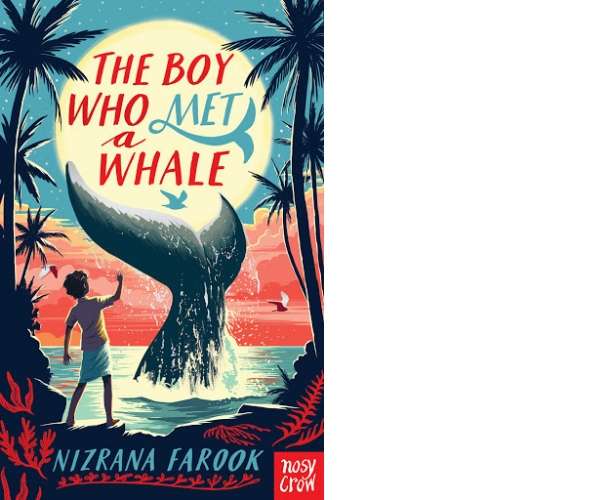UK based author Nizrana Farook publishes her second book while her first book is optioned for British TV. Meshing her own childhood experiences in Sri Lanka with her vivid imagination and writing prowess, Nizrana Farook has just unveiled her second book, The Boy Who Met a Whale published by Nosy Crow which will be released in 2021. Earlier this year her first book The Girl Who Stole an Elephant was also published by Nosy Crow, a publishing company that has recognised Nizrana’s gifted ability to write riveting stories that hold children in thrall.
The Girl Who Stole an Elephant received rave reviews in the British Press and was also mentioned and chosen as a good book for children on many UK TV shows too. The book was also longlisted by the BBC’s iconic children’s TV show Blue Peter for its 2021 Blue Peter Book Award in the Best Story Category.
Based in Hertfordshire, UK, Nizrana was elated when the British newspaper The Guardian included her first book in the Best Children’s Books of 2020. Additionally, the book was also nominated for the Carnegie Medal, an honour indeed. The icing on the cake for Nizrana was when she announced on her social media that her first book was optioned for a TV series by Heroic Books with Blue Bear Film and TV. This no doubt will elevate her status as an author and shine a light on Sri Lanka.
Q What swayed you to start writing children’s fiction?
It came from falling in love with books as a child. As I grew up I left that far behind and got on with other things in life. But after a long gap, I revisited children’s books when I had my own children. It reminded me of how much I loved books and how much pleasure and escape it could give young children.
Q While you were a student at Methodist College, was your potential as a writer identified and supported?
It was actually a temporary teacher who came as a maternity cover who saw potential in me. She thought I was a good writer, and I got a big boost out of her telling me that without any reservation. She saw something in me, and she was generous with her praise. Methodist College in general had a high standard when it came to English. I mean I was in the same English class as two Gratiaen prize winners!
Q In a nutshell what is the theme of your book?
The Girl Who Stole an Elephant is first and foremost about friendship and loyalty. There is of course a twisting adventure throughout, but I think themes of friendship and loyalty underpin all the choices the children make through their journey and its resolution.
Q How did the idea for the characters come about?
It was from a writing exercise I did. I came up with a girl and boy character who have skills and traits the other one doesn’t. Chaya is brave and headstrong and daring while Neel is more guarded and circumspect, and yet when it came to the jungle he proved to be more practical and useful as a travelling companion. Nour, in turn, had her own strengths and weaknesses that played off theirs. I liked the dynamic between this trio and had great fun writing their interactions.
Q You completed an MA in Writing for Young People at Bath Spa University. How did that help your journey as a writer?
It helped me enormously. I knew getting published was going to be a very long shot. Every time I would read a new British children’s book I’d read the acknowledgements and kept coming across this course. I wondered what was so special about it that so many graduates were getting published. So I looked into it further and made a decision to apply. This was after I’d written and edited a whole book. I felt it wasn’t very good and I could do better. The course delivered in spades for me, and I felt it completely fast-tracked my journey to publication.
Q How did publishing your first book change your process of writing?
It changed it in the sense that I didn’t have time to mess around! With The Girl Who Stole an Elephant, I wrote it without any kind of constraints other than the deadlines of my MA. Once that was over I could take all the time I needed, and all deadlines after that were self-imposed. This was before I got my book deal of course. With book two I was writing under contract, so I had to keep to the publishing schedule. I also needed to factor in being a published author and doing promotional work on one book while writing a whole different one.
Q What kind of research do you do, and how long do you spend researching before beginning a book?
I don’t spend time on research before I begin to write. My books are set in a fictional Sri Lanka of the past, so I have some leeway with what I write. I take quite a bit of licence with geography and other details. I do try to mention endemic animals and plants as much as possible though, simply to root the setting firmly in Sri Lanka. I do research that part. I also do some research for inspiration rather than facts.
Q What is your favourite childhood book?
The first book I read for pleasure was Five on a Treasure Island by Enid Blyton. I found it in a drawer in my grandparents’ house – a battered old paperback that belonged to my aunts. I started reading, and reading, and couldn’t stop. I was completely taken by the atmosphere and adventure, and the thought of these children on an island on their own and exploring a shipwreck. That was the moment that made me a reader, and ultimately years down the line, a writer.
Q What if any of your own childhood experiences have seeped into your book?
All the jungle scenes came from a school trip to Sinharaja. The Bio and Maths streams in school used to go on a field trip to Beruwela and Sinharaja, and it was a trip so memorable that it has stayed with me and my friends. In fact, even now no meetup is complete without some nostalgia about that trip. I dug up the photos from that time and had that experience in my mind when writing.
Q Do you want each book to stand on its own, or are you trying to build a body of work with connections between each book?
It’s a bit of both actually. Each book is a stand-alone and features different characters, and there’s no overlap in the story between books. But they are set in the same world, and you might spot an Easter egg or two now and then!
Q If you could tell your younger writing self anything, what would it be?
There isn’t much I would change actually. In many ways, it’s been a dream writing journey and debut. Of course, there are lows and frustrations in the process, but overall it’s been good. What I would tell myself is to keep going and never stop. You have to be tenacious in this industry.
Q What is your writing Kryptonite?
I tend to get distracted by other things incidental to writing. For book two for example I watched hours of whale videos. Or I’d research a character name or a type of plant and go down a rabbit hole that I emerge from ages later. None of it gets into the book and I collect some obscure knowledge that I’ll never need.
Q You have been approached to turn your book into a film. Can you tell us more about that?
It has been optioned for TV. It’s been taken on by Ian Benson and BAFTA and International Emmy award-winning Helen Blakeman for an animated children’s series based on The Girl Who Stole an Elephant. Helen’s adapted books by Jacqueline Wilson and Michael Morpurgo for the screen, so I know my book is in very safe hands.
Q What was your reaction when Waterstones selected your book as a book of the month and Blue Peter gave you a rave review?
It’s been beyond any dream I had that my book would do so well. I wanted to be published, and I thought that was a big enough ambition! Especially since I didn’t have a background in writing at the time. I did Maths at A Levels, then a degree in computer science. When I decided to do an MA I used to drive over a hundred miles (each way!) to my classes in a castle in Corsham, Wiltshire where peacocks roam the streets. So a lot of work went on behind the scenes of these big announcements. Getting Waterstones Book of the Month was a game-changer as it gave my book so much visibility. It was in shop windows and special displays, and I’ll never forget the moment I saw it on a London train platform. Then came awards season with the Blue Peter longlisting and Carnegie nomination. There’s been a lot of head-turning moments like that, but I’ve come to realise that the real work that pays dividends is when it’s just me and my computer, typing away at my story!





0 Comments